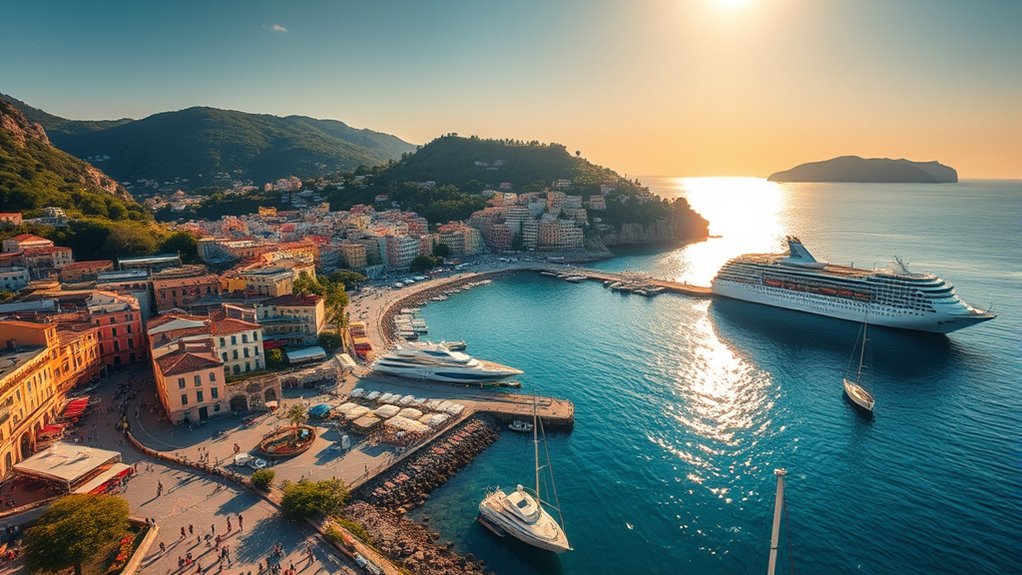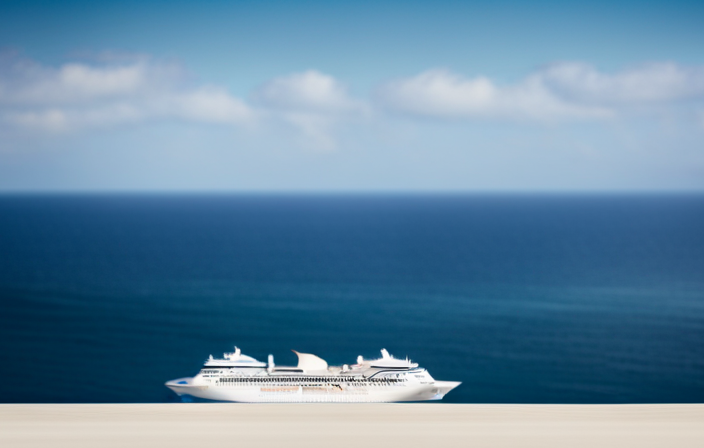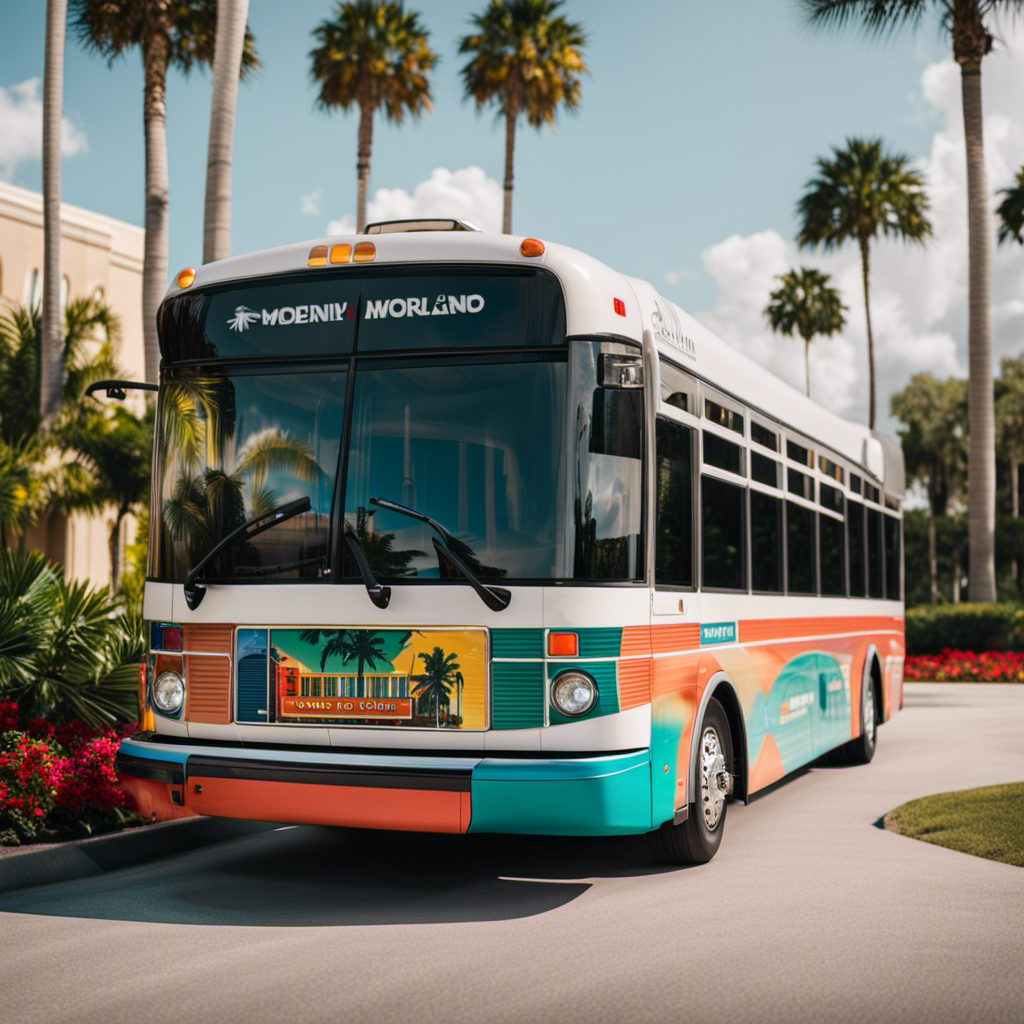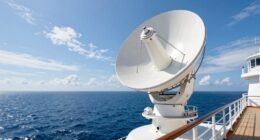The Mediterranean cruise season varies throughout the year, with peak season in late spring to early fall when ports are lively, and festivals like Feria de Sevilla and Carnevale happen. Spring and fall offer more relaxed atmospheres with fewer crowds, perfect for authentic cultural experiences. Winter is quieter but still charming, often featuring unique festivals and better deals. Understanding these seasonal differences helps you plan trips that match your interests—continue exploring to learn more about ideal times to cruise.
Key Takeaways
- Peak season (late spring to early fall) features lively festivals, warm weather, and active island hopping, attracting most travelers.
- Shoulder seasons (spring and fall) offer milder crowds, pleasant weather, and authentic cultural experiences with fewer tourists.
- Winter season is quieter with fewer cruises, better deals, and unique local festivals, providing a more relaxed atmosphere.
- Seasonality influences port activity, ferry schedules, and the timing of festivals, shaping the overall cruise experience.
- Festivals and regional events vary by season, enriching travel with cultural traditions, music, and cuisine at different times of the year.
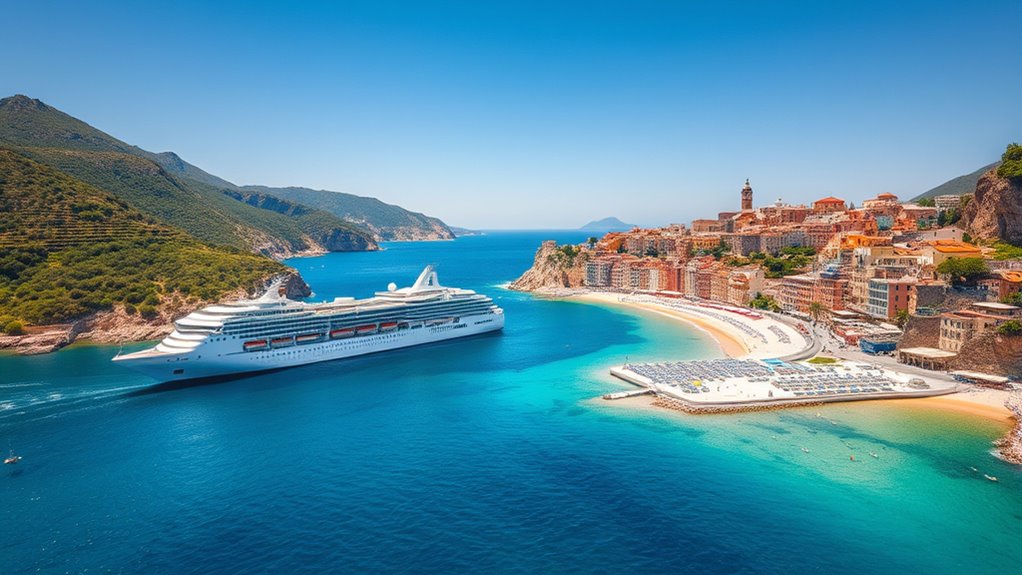
The Mediterranean cruise season varies throughout the year, influencing your travel experience and choices. When planning your trip, you’ll notice that different times bring unique opportunities, especially for immersing yourself in local festivals and enjoying island hopping adventures. During peak season, typically from late spring to early fall, you’ll find the weather warm and the ports bustling with activity. This period is perfect if you want to experience lively festivals, such as Spain’s Feria de Sevilla or Italy’s Carnevale, which showcase vibrant traditions, music, and food. Participating in these events adds a cultural layer to your cruise, making your trip more memorable. Plus, during this time, ports are lively, making it easier to hop from one island or coastal city to another, with frequent ferry connections and tour options. Island hopping becomes a highlight, allowing you to explore the diverse landscapes and cultures of the Mediterranean islands—whether it’s the Greek Cyclades, the Balearic Islands in Spain, or the Dalmatian coast in Croatia.
In the shoulder seasons—spring and fall—you’ll experience a more relaxed atmosphere. The weather remains pleasant, but the crowds thin out, giving you a more authentic experience of local festivals without the crush of tourists. Spring, in particular, offers the chance to see blooming landscapes and attend festivals like cherry blossom celebrations in Sicily or local harvest festivals in southern France. Fall also offers unique festivals, like grape harvests and wine tastings in regions like Tuscany or the Peloponnese. These seasons are ideal if you prefer a slower pace, fewer crowds, and more intimate encounters with local culture. Plus, island hopping during these months can be easier because ports are less crowded, and ferry schedules are less hectic, giving you more flexibility to explore at your own pace.
Winter is the quietest time for Mediterranean cruising, but that doesn’t mean the experience is dull. Some destinations host winter festivals and events, and you can enjoy a more relaxed, intimate cruise experience. You won’t get the same vibrant festival atmosphere or the same frequency of island hopping trips, but visiting during this off-peak season offers a different kind of charm. You’ll find better deals and fewer fellow travelers, making it perfect if you value tranquility and personalized service. Plus, some ports are less crowded, giving you more time to explore local markets, historic sites, and enjoy the local cuisine without the usual hustle. Overall, understanding how the season influences your opportunities for local festivals and island hopping helps you choose the best time to cruise the Mediterranean based on your interests, whether it’s lively celebrations, cultural immersion, or peaceful exploration. Additionally, family heritage can influence preferences for certain destinations or festivals, enriching your travel experience even further.
Frequently Asked Questions
How Do Local Festivals Impact Cruise Schedules in the Mediterranean?
Local festivals notably impact your Mediterranean cruise schedule through local festival scheduling and cultural event impacts. When festivals occur, ports may become busier or less accessible, prompting cruise lines to adjust itineraries or dates. You might find more vibrant festivities and unique experiences, but also increased crowds. Staying informed about local events allows you to plan better, ensuring you enjoy the cultural highlights without missing out due to scheduling conflicts.
What Are the Best Months for Avoiding Tourist Crowds?
Think of the shoulder months as gentle whispers before the storm—May and September. During these off-season travel months, you avoid the bustling crowds, finding tranquility in Mediterranean ports. These months symbolize a balance, offering pleasant weather and fewer tourists. By choosing to cruise in these shoulder months, you embrace a more authentic experience, soaking in the culture without the chaos, making your journey more intimate and memorable.
How Does Weather Variability Affect Cruise Itineraries?
Weather variability can substantially impact your cruise itineraries because changing weather patterns influence sea conditions and port schedules. Storms or high winds might cause delays or reroutes, affecting your planned stops. You’ll want to stay flexible and check weather forecasts regularly, especially during transitional seasons. Mild weather usually leads to smoother sea conditions, ensuring a more comfortable voyage. Being aware of these factors helps you enjoy your trip despite unpredictable weather patterns.
Are There Regional Differences in Cruise Seasonality Within the Mediterranean?
Yes, regional climate and port infrastructure influence cruise seasonality within the Mediterranean. You’ll find that northern areas with milder summers and well-developed ports, like Spain and Italy, see more cruises from late spring to early fall. Conversely, eastern regions with harsher winters and less developed infrastructure tend to have shorter seasons. These differences impact your planning, as you might prefer certain ports based on climate and ease of docking during peak times.
How Do Geopolitical Events Influence Cruise Availability?
Political perturbations profoundly impact cruise availability, as geopolitical stability directly influences cruise scheduling. When tensions escalate or conflicts occur, cruise lines often cancel or reroute trips to guarantee passenger safety. You’ll notice fewer cruises during unstable periods, with companies prioritizing security over scheduling. Conversely, periods of peace promote more voyages, making geopolitical events a pivotal factor in determining when and where you can set out on your Mediterranean adventure.
Conclusion
As you plan your Mediterranean adventure, remember the dance of the seasons guides the crowds and colors. Spring and fall are your secret gardens—peaceful, vibrant, and bursting with life—while summer’s sun turns the sea into a shimmering stage bustling with energy. By understanding this rhythm, you can tune into the perfect moment to sail, turning your voyage into a masterpiece of timing and discovery. Let the seasons be your compass to unforgettable Mediterranean memories.

